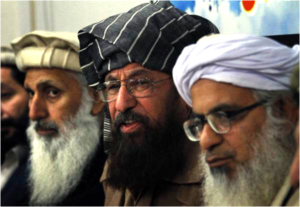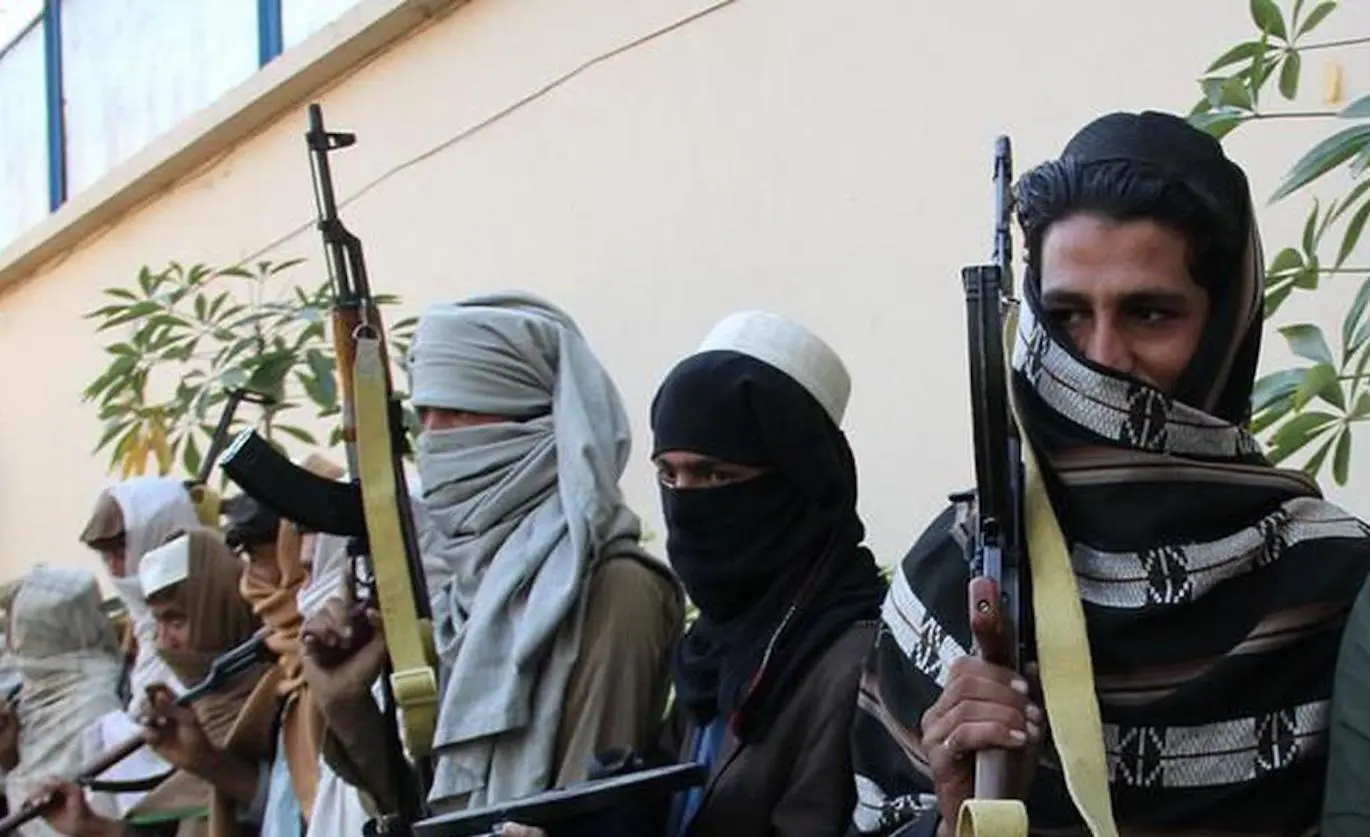Raza Rumi
Al Qaeda’s plan for the region will succeed if Islamabad does not take stock of the deep penetration of its ideology into the folds of Pakistani society

The charade of talks being played by Pakistan’s major political parties, media and perhaps sections of the permanent establishment stands exposed. The prime minister, after giving a hard hitting speech in the Parliament, adopted the path of appeasement and appointed a committee to negotiate. The Pakistani faction of the Taliban movement – Tehrik-e-Taliban Pakistan (TTP) – appointed a few sympathizers as its nominees. The charismatic star Imran Khan was one of them, but he refused to negotiate on behalf of TTP despite advancing their case for the last few years. With no time frame and unclear terms of reference the so-called talks have foundered on the rocks of grim reality: the Pakistani state continues to give space to violent operations of TTP.
In the past two weeks, there have been more than 17 attacks of various kinds sometimes accepted by the TTP and at other times disowned. But groups that have owned the attacks are part of the network or affiliates of the loose network comprising TTP. There are at least three dozen small and big groups that are linked to the TTP. Many are off-shoots of state sponsored jihad outfits but have turned rogue or gained some measure of autonomy. This is why the key question that has dogged the talks is if any agreement between TTP appointed negotiators and the government would be accepted by all and sundry. The emerging consensus in the country is that it would not hold and violence would continue.
A chilling example of this syndrome was the admission of Mohmand Agency Taliban that last week they had killed 23 Frontier Corps (FC) soldiers who were kidnapped from Shongari checkpost in the tribal region in 2010. A day later, a valiant Major of Pakistan Army was also killed. The brazen attacks on the law enforcement agencies have continued despite the much celebrated intent of the TTP to talk. The strategy of talking to ‘our own people’ as popularized by Imran Khan and other right wing parties therefore is backfiring. The Sharif government vacillating between the noises of tough action and appeasement scared of backlash in the Punjab as well as losing the right wing vote bank does not help matters either. Sharif’s dilemma is related to his popular base in the Punjab which his party does not want to lose at any cost. But there is more method to this madness.
Imran Khan has made public a conversation on the chances of the military’s success if an operation were to be conducted in North Waziristan against the TTP and its allies. According to Khan, former Army Chief Gen Kayani reportedly briefed the prime minister that there was only a 40% chance of success. There was a muted national outrage and questions were raised in the media as to the authenticity, purpose and timing of such a ‘revelation’. Gen Kayani denied it recently through an Urdu columnist and also via unsourced news reports. Earlier, a senior retired Army official had made a similar assessment: “the chances of Pakistan Army winning against the militants are slim and therefore other options may have to be agreed upon” said the official with a request for anonymity. In part this thinking stems from the fact that even if the TTP is neutralized in the north, its supporters in the Punjab province namely Lashkar-e-Jhangvi and outposts in Karachi would still be active and potent enough to give a tough time to our law enforcing apparatus.
However, Brig (retd) Asad Munir disagrees with this assessment when I asked him the same question. He said “conditions in other parts of FATA were quite tough but the Army prevailed”. Brig Munir is an officer with immense experience in intelligence and field operations. Nevertheless, the reluctance for years has some logical basis to it.
The Afghan Taliban also known as the ‘good Taliban’ (as they don’t target Pakistan) are intertwined with the TTP (bad Taliban). There is ample evidence of the ideological and at times operational relationship which has surfaced in the recent years. However, as we need to keep our cards intact in Afghanistan these linkages have been downplayed and the mainstream media has been glorifying the Afghan Taliban as freedom fighters. Popular leaders like Imran Khan have also convinced Pakistan’s younger population of this mythological postulate. Such gerrymandering has resulted in increased space and tolerance for TTP within Pakistani society.
For instance, a TTP spokesman reportedly said in October 2013: “The Afghan Taliban are not only financially supporting the Pakistani Taliban in their war with Islamabad but they are also providing them sanctuary in Afghanistan.”
Amir Mir (Mulla Omar influencing TTP’s decision-making, The News, February 19, 2014) has reported that a section of the intelligence think that “Islamabad should continue to appease them, instead of making them angrier at Pakistan than they presently are for betraying them after the 9/11 attacks…” Mir has also reported on the strong ties between the current leader of TTP and the joint Ameer Mullah Omar.
The civil-military leadership therefore continues to oscillate between its worn out and outdated security policy and the massive challenge of domestic terrorism. In fact, the victory of Afghan Taliban will result in strengthening the TTP. Perhaps the time has come to discard this worldview. In the meantime, the space for Pakistani media and independent opinion has further shrunk due to the threats they face in reporting on the issue of Taliban and terrorism. At least three media houses have been attacked and the journalists face little or no protection from any quarter. In such a situation the toxic narratives gain ground and terrorists who kill Pakistan Army officials appear as stakeholders on TV screens.
The Al Qaeda Plan for the region will continue to succeed if Pakistan does not take stock of the deep penetration of its ideology into the folds of Pakistani society. Such is the policy paralysis that the internal security policy has been pending a cabinet review since December 2013 while the country burns. Further appeasement and space to violent extremism will be suicidal for the state. This is the time to act.
